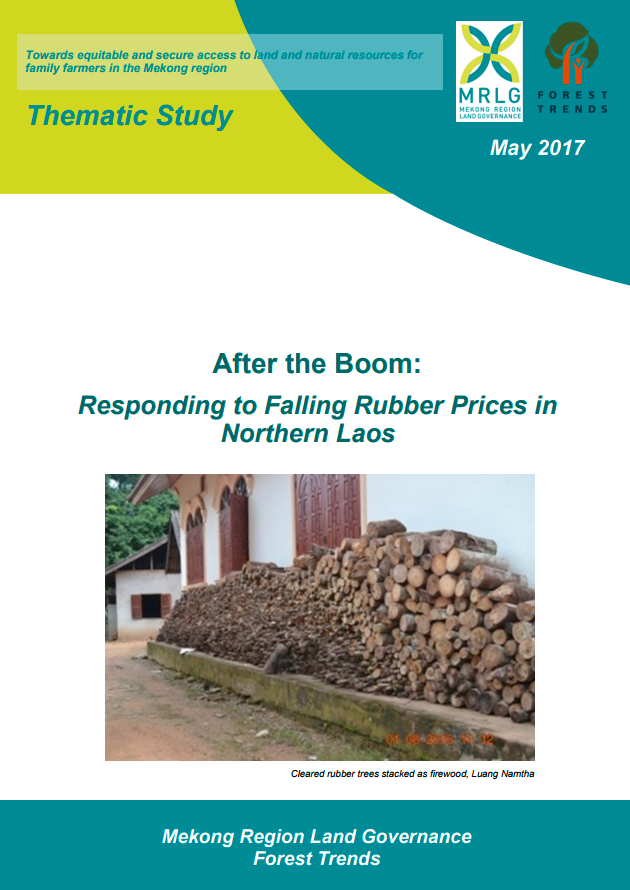Location
Project Description
Land governance is at the center of development challenges in Cambodia, Laos, Myanmar and Vietnam. Governments are revising land policies and practices in order to face these challenges. The project aims to (i) assist the emergence of more favorable policies and practices for securing the rights and access of family farmers to land and natural resources; and (ii) to strengthen the effectiveness of concerned stakeholders through learning, alliance building and regional cooperation.
The MLRG project is based in Laos, with local offices in three other countries: Cambodia, Myanmar, and Vietnam. It supports a wide range of activities (training, exchanges, case studies, focused research, documentation, workshops and seminars) at local, national and regional levels.
The MRLG can support initiatives through three component windows, the first is a learning and advocacy ongoing activity platform supported by National Facilitators in each country. The second two are funded through our Grant Facility open to all stakeholders based on demand and proposals prepared. A short term and immediate response window is the Quick Disbursement Fund (QDF). The second longer term and competitive proposal process is the Innovation Fund (IF). The learning and advocacy activity platform prepared on an annual basis in consultation with stakeholders to organize information collection, analysis, and dissemination, and for horizontal learning and structured learning visits, coaching and pairing, training and organizational strengthening, at the national and regional level.
Members:
Resources
Displaying 41 - 45 of 110Responsible Large-Scale Agricultural Investments in the Mekong Region
The Mekong Region Land Governance (MRLG) project, MLIKE (Mekong Land Information and Knowledge Exchange), and the Land Portal co-facilitated an online dialogue on “Responsible Large Scale Agricultural Investments in the Mekong Region” on 09-27 October 2017. The full dialogue can be read here. This report delineates the key messages emerging from the dialogue.
Land of Sorrow: Human rights violations at Myanmar’s Myotha Industrial Park
(Paris, Yangon) Myanmar may soon face a land conflict epidemic as a result of the growing influx of investments and the consequent demand for land, unless laws and policies that adequately address land rights issues are urgently adopted and implemented, FIDH warned in a new report published today.
After the Boom: Responding to Falling Rubber Prices in Northern Laos
Rubber prices in northern Laos have fallen significantly over the last few years, eroding much of the initial enthusiasm of both farmers and government officials about rubber providing a way out of poverty for poor upland farmers. This thematic study examines responses to this price drop by Lao rubber growers and state institutions in northern Laos. It also examines the reasons that prices are what they are, given that price volatility was identified as a risk during the mid-2000s, and that in at least some cases, steps were taken to protect contract farmers from falling prices.
After the Boom: Responding to Falling Rubber Prices in Northern Laos
Rubber prices in northern Laos have fallen significantly over the last few years, eroding much of the initial enthusiasm of both farmers and government officials about rubber providing a way out of poverty for poor upland farmers. This thematic study examines responses to this price drop by Lao rubber growers and state institutions in northern Laos. It also examines the reasons that prices are what they are, given that price volatility was identified as a risk during the mid-2000s, and that in at least some cases, steps were taken to protect contract farmers from falling prices.
Innovative Approach to Land Conflict Transformation: Lessons learned from the HAGL/indigenous communities’ mediation process in Ratanakiri, Cambodia
In the Mekong region, conflicts between local communities and large scale land concessions are widespread. They are often difficult to solve. In Cambodia, an innovative approach to conflict resolution was tested in a case involving a private company, Hoang Anh Gia Lai (HAGL), and several indigenous communities who lost some of their customary lands and forests when the company obtained a concession to grow rubber in the Province of Ratanakiri. The approach was developed by CSOs Equitable Cambodia (EC) and Inclusive Development International (IDI) with the support of QDF funding from MRLG.





